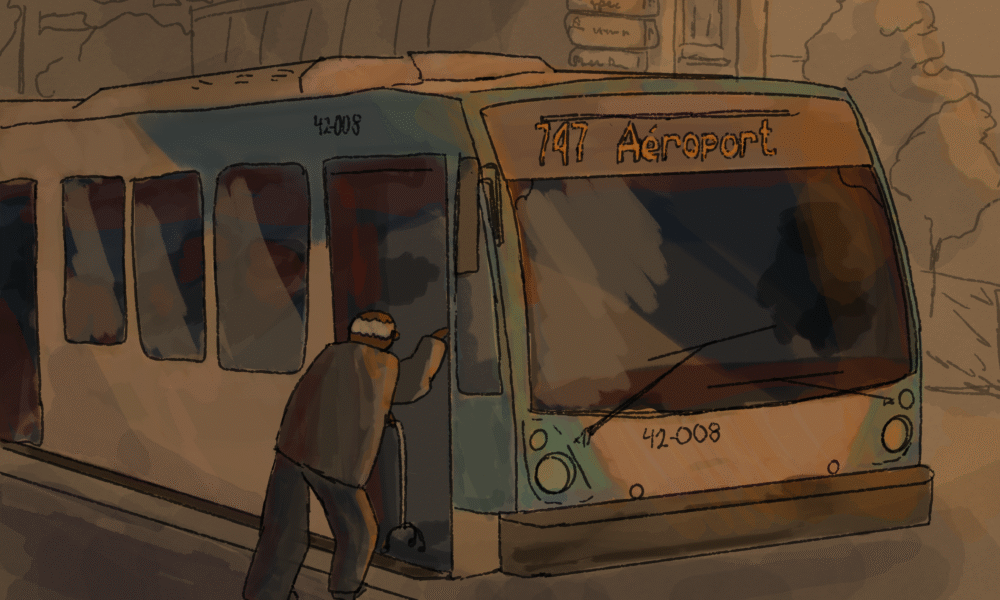This October, employees of the Société de transport de Montréal (STM) filed strike notices that will disrupt bus and metro services throughout November. The Syndicat du transport de Montréal-CSN, which represents maintenance workers, has pledged to strike from Oct. 31 to Nov. 28. The Syndicat des chauffeurs, opérateurs, et employés des services connexes (SCFP 1983)—representing drivers and operators—also plans to strike, instead on Nov. 1, 15, and 16. Their decisions to strike follow over 100 failed negotiation efforts between the unions and the STM, in which the employees sought a 25 per cent wage increase and compensation for the hours they spend on tasks adjacent to their primary responsibilities, such as moving from station to station.
This strike, critical for livable pay and fair working conditions for STM employees, will bear an impact on individuals across Montreal, including McGill students, faculty, and staff. As such, it is crucial that McGill, and other public institutions whose communities rely on public transit, prioritize supporting the strike by offering reasonable accommodations for those impacted—not demonizing the strike as an inconvenience.
This will mark the third and fourth strikes by STM unions this year, following a two-week strike in September and an earlier strike in June. Yet, the prospects of achieving improved pay structures seem low; the STM has communicated a plan to cut over 300 jobs to offset its severe budget deficit, a fiscal antithesis to the wage increases its unions are demanding.
The STM serves over 1.7 million riders daily, many of whom take the metro out of necessity. Low-income Montrealers who cannot afford a car or alternative transit options will be particularly at risk if the metro shuts down, alongside commuters, senior citizens, and workers with precarious employment circumstances or irregular working hours. Furthermore, given that the strike measures extend to the closure of metro stations themselves, unhoused populations who rely on stations as a respite during the colder months will be forced into life-threatening conditions.
The McGill community too relies on the services the STM offers: Approximately 50 per cent of students and faculty and 70 per cent of staff use public transit or shuttle bus options to access campus. When strikes disrupt service, students face long waits or are forced to opt for more costly, less sustainable alternatives. Yet when the STM unions went on strike just a month ago, the McGill administration’s only response was a brief memo directing students to consult the STM website and anticipate longer commute times, encouraging faculty to “be flexible” with students who may be impacted—without providing any tangible guidance or institutional support.
Nowhere in the memo did McGill set standardized expectations for professors and students navigating the strike. Administrators did not mandate classes go online or be recorded, resulting in a confusing mix of responses and varying degrees of flexibility. As a result, the burden of reliable support for the McGill community amidst STM closures fell on Students’ Society of McGill University services such as DriveSafe, while the McGill administration absolved itself of all responsibility to ensure campus accessibility.
Furthermore, the communication memo lacked any information regarding why the strike was taking place, effectively encouraging the McGill student body to redirect their frustration towards strikers. McGill has an extensive history of suppressing labour movements on campus, most recently during the 2024 strikes hosted by its Faculty of Law, during which administrators dragged out negotiations and insulted students who supported the striking faculty members. McGill must abandon its provocation of anti-union sentiment and blame-shifting among community members, and instead prioritize accessibility during all strikes, STM, faculty union, or otherwise.
McGill must standardize a university-wide response to STM closures, complete with genuine, effective accommodations that do not shift responsibility to the discretion of faculty. Without a cohesive, integrated response, community members are left disadvantaged and resentful of critical union activity, while the union’s efforts themselves are vilified. Students too must hold in high regard the rights of striking workers and avoid viewing metro closures as an inconvenience rather than a rightful protest tactic.
STM employees have a right to strike; McGill has an obligation to support union activity and accommodate its affected students, faculty, and staff.









